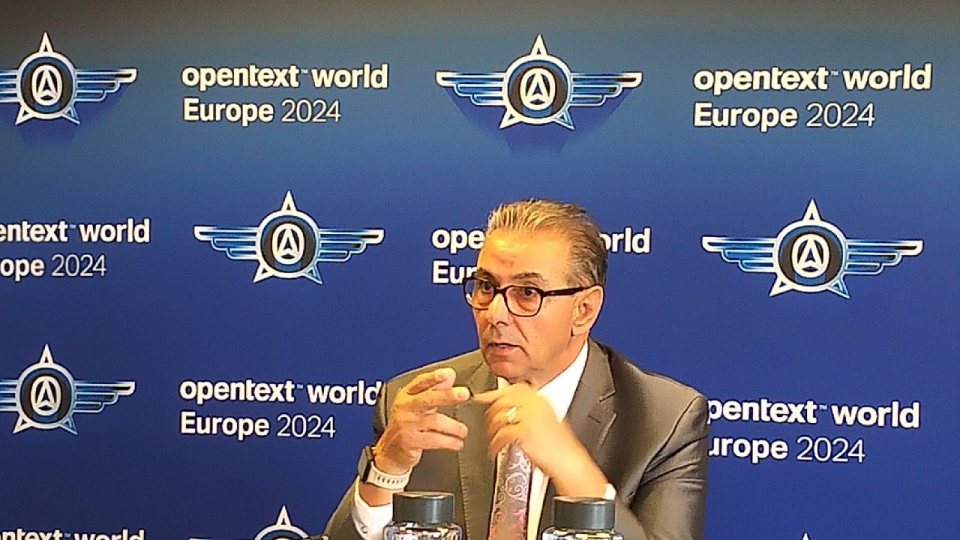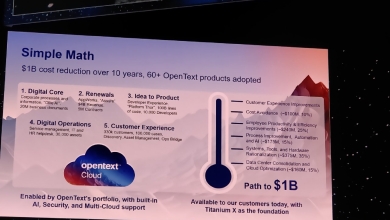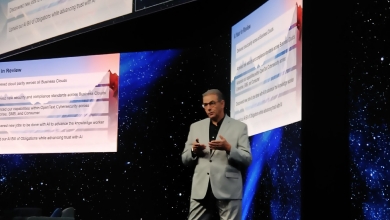
Information management software vendor OpenText has launched the latest versions of its products, and is helping organisations and partners get the most out of the new AI features it has introduced, with specialist training.
As we reported yesterday, the company held the London edition of its OpenText World event this week. Among its other messages, it was keen to illustrate what a big leap it is from cloud and automation to AI.
CEO and CTO Mark Barrenechea told hundreds of partner and customer delegates at the event: “With automation it was all about the internet, data, coding, clicks, and authenticity. But with AI, the shift is towards a fabric/an internet of clouds, learning models, prompts, conversations, and surreality.”
To help organisations with the shift, the company has introduced its Earn Your Wings training and deployment initiative, to support its Aviator AI technology platform.
The offer sees up to 1m of your documents loaded into the OpenText Private Cloud, supported by the OpenText Content Aviator. Metadata, embeddings and vectors are enabled, and a full language model based on Google Vertex makes the data ready for prompt tuning.
The deployment covers up to five users for six months, at a cost of between $150,000 and $350,000. While OpenText trumpets that its AI offerings are available “at the push of a button”, it is canny enough to realise a little bit more work is required from users to get the best query results out of AI.
That’s why, in the new version of the Cloud Editions 24.2 software suite, OpenText not only offers Content Aviator, but also ITOM Aviator, Developer Aviator, Business Network Aviator, Search Aviator, Aviator Platform, Experience Aviator, IoT Aviator, and Aviator Thrust – what it describes as a “squadron”.
Muhi Majzoub (pictured), chief product officer at OpenText, told IT Europa in a briefing: “We are getting plenty of enquiries for our Earn Your Wings training, and we are putting customers in touch with the right OpenText engineers to do it.
“Because of the way we have developed Aviator for our own operations, we no longer have to use paid-for tools from other vendors either, you can save money with the right AI strategy.”
On the way it develops its own products and services, Majzoub said: “We will never axe our own 8,000 engineers because of AI, but we want them to be more creative. We want to take a junior engineer and quickly turn them into a senior engineer.
“We want to take away the boring stuff from their workload, like documenting their code, and tell Aviator to do it instead, if it can do it accurately enough. We want them to do the interesting stuff.”
With the onset of AI, and it taking on basic coding, data architecture and system design were the skills new developers now had to specialise in to get a job in the industry, added Majzoub.


